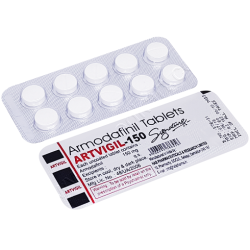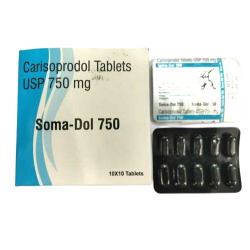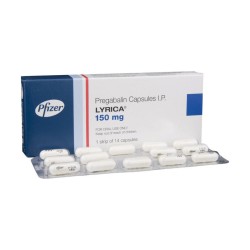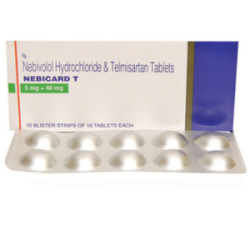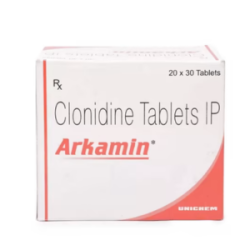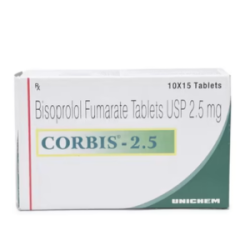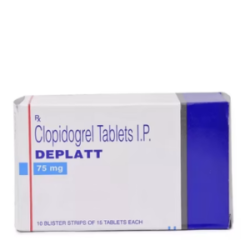Pregabalin 75 mg Lyrica Capsules Treat for Epilepsy & Anxiety
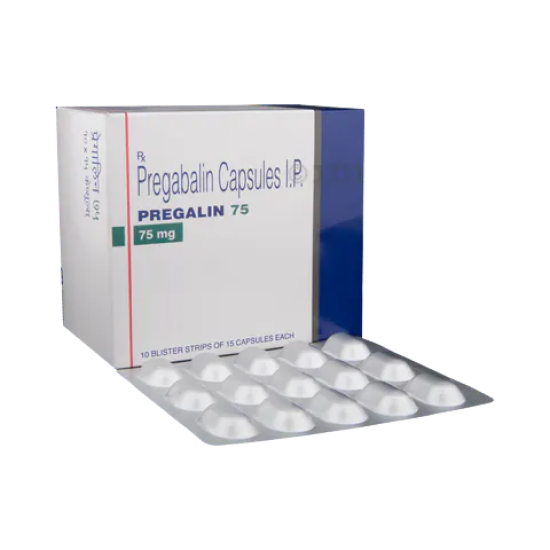
- Stock: In Stock
- Brand: Torrent Pharmaceuticals Ltd
- Model: Pregabalin 75
- SKU: PGB75
- Active Ingredient: Pregabalin
- Treatment: Pain Killer
- Alcohol: Don`t Drink
- MPN: PGB50000
Available Options
Pregabalin 75 mg is Best to Treat Epilepsy and anxiety. How is pregabalin ER tablet used to treat pain caused by nerve damage, spinal cord injury, and shingles know its side effects and where to buy it online.
Oral pregabalin capsules are only available under the manufacturer's brand name. There isn't any generic version of this medication. Lyrica is a very popular brand name for this medicine.
An extended-release pill, solution, and capsule form of Pregabalin are available. All forms must be swallowed whole. Pregabalin is the generic name for Lyrica, which is accessible as an oral capsule.
To treat neuropathic pain and fibromyalgia, the oral capsule of Pregabalin may be utilized. When used with other antiepileptic medications, it may be used to treat partial-onset seizures as well.
Basic Knowledge Panel:
| Product Name | Pregabalin 75mg |
| Brand | Lyrica CR |
| Ingredient | Pregabalin |
| Drugs Class | Anti-convulsant |
| Time to Work | 15-30 Minutes |
| Manufacturer | Torrent Pharma. Ltd |
| Price Range | $(45-95) |
| Used for | Neuropathic pain and Fibromyalgia |
| Weight | 75mg |
| Packaging | 1 Strip (10 Capsules) |
What is pregabalin 75 mg?
Pregalin 75mg is only available through prescription. It comes in three different forms: a tablet, a solution, and a capsule.
All forms must be swallowed whole. Lyrica is the brand name for pregabalin oral capsules. Oral Pregabalin capsules may be used in conjunction with other treatments.
In this case, you may need to take it in conjunction with other drugs. Controlled substances include the drug pregabalin. Using this medication is going to be strictly monitored by your doctor only.

How does this drug work?
Anticonvulsants, of which Pregabalin is a member, treat seizures. There are a number of medicines that fall into the same class.
These medications are often used to treat diseases that are very similar to the ones they are meant to treat.
Exactly how pregabalin affects the body isn't known. Damaged or hyperactive nerves in your body that produce pain or seizures are thought to be calmed by this treatment.
What did Pregabalin use for?
Pregabalin 75 mg Use oral capsule is an extended-release tablet used to treat the following conditions:
- Neuropathic pain resulting from diabetes, shingles, or spinal cord injury,
- Chronic pain syndrome called fibromyalgia (pain all over your body),
- When used with other seizure medications in kids over the age of one month.
What are the Dosage warnings?
What side effects can this medication cause?
- Anxiety
- Dizziness
- Headache
- An absence of cohesion
- Difficulties with articulation
- A bloated feeling of euphoria
- Unsteadiness or a lack of balance
- Involuntary movement of a bodily part due to exhaustion
- Concentration difficulties or inability to focus on a subject
- A bluish-tinged skin tone; bewilderment; or severe tiredness are all signs of a medical emergency.
- Swelling of the eyes, face, throat, mouth, lips, gums, tongue, head, or neck swelling of the arms, hands, feet, ankles, or lower leg, particularly if it is accompanied by fever hazy, double, or other disturbances in vision.
What is the drug interaction?
Buprenorphine
- Narcotic pain relievers, such as oxycodone
- Anti-anxiety medications, such as diazepam, lorazepam
- Antihistamines, such as chlorpheniramine, promethazine
- Antipsychotics, such as aripiprazole, chlorpromazine, haloperidol
- Antidepressants, such as amitriptyline, citalopram, fluoxetine, paroxetine
- Heart medications, such as ace inhibitors (e.g., benazepril, captopril, enalapril)



-250x250w.jpeg)

